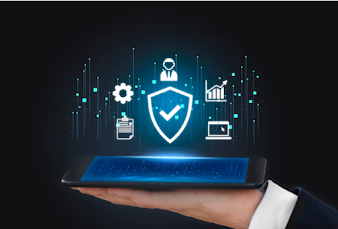The Evolving Role of Compliance Officers in Data Privacy
In contemporary digital landscape, wherein statistics breaches and privacy issues dominate headlines, the function of compliance officers has advanced appreciably. As guardians of regulatory adherence and moral standards inside companies, compliance officers now find themselves at the forefront of making sure records privacy. With the increasing complexity of guidelines like GDPR, CCPA, and emerging laws international, their responsibilities have improved beyond conventional compliance measures. Let's delve into the pivotal aspects of this evolving function and the way compliance officials can navigate the elaborate terrain of information privacy efficaciously.
Understanding
Regulatory Frameworks: Compliance officers must own a comprehensive
expertise of evolving statistics privateness regulations globally. This
consists of not simplest the well-hooked up mandates like GDPR and HIPAA
however also staying abreast of rising laws which include Brazil's LGPD or
California's CPRA. By maintaining a finger on the pulse of regulatory
adjustments, compliance officers can proactively adapt rules and tactics to
ensure ongoing compliance.
Integration of
Technology: The development of generation has revolutionized facts dealing
with practices, providing both possibilities and demanding situations for
compliance officials. Leveraging innovative answers consisting of AI-pushed
compliance monitoring equipment or blockchain for information integrity
verification can beautify the efficiency and effectiveness of compliance
measures. Compliance officers need to embody those technology even as
additionally ensuring they align with regulatory requirements and moral
requirements.
Risk Assessment and
Mitigation: Conducting thorough danger assessments is paramount in
safeguarding touchy statistics. Compliance officers ought to collaborate with
IT and cybersecurity groups to pick out capacity vulnerabilities in information
coping with approaches and enforce sturdy mitigation techniques. This may
additionally involve encryption protocols, access controls, and everyday safety
audits to preemptively cope with any lapses in facts privacy.
Educating
Stakeholders: Data privacy is not solely the duty of compliance officers
but a collective attempt across the corporation. Effective communique and
education projects are vital for fostering a subculture of compliance from
pinnacle executives to frontline personnel. Compliance officers ought to
provide everyday updates on regulatory changes, conduct training sessions, and
increase informative resources to empower stakeholders with the knowledge and
equipment to uphold information privateness requirements.
Cross-Functional
Collaboration: Collaboration across departments is integral for making sure
holistic compliance with information privacy guidelines. Compliance officials
should collaborate carefully with criminal suggest, IT safety teams, human
resources, and advertising departments to develop complete records privacy
strategies. By breaking down silos and fostering interdisciplinary cooperation,
organizations can address compliance demanding situations greater correctly.
Auditing and
Monitoring: Regular auditing and tracking are critical components of a
robust data privateness compliance application. Compliance officers ought to
establish stringent audit protocols to assess compliance with inner policies in
addition to regulatory necessities. Automated monitoring systems can flag
anomalies or potential breaches in actual-time, enabling swift remediation
movements to mitigate dangers successfully.
Ethical Data
Practices: Beyond regulatory mandates, compliance officials play a
important function in upholding ethical data practices inside organizations.
This involves making sure transparency in information collection and usage,
acquiring express consent from people, and respecting their rights over their
personal facts. By championing moral statistics practices, compliance officials
can foster believe and credibility with stakeholders while mitigating
reputational risks related to facts misuse.
Adaptability and
Agility: The panorama of facts privateness is continuously evolving,
necessitating adaptability and agility from compliance officials. Rapid
technological improvements, shifting patron expectations, and regulatory
updates require a proactive method to compliance control. Compliance officials
must live vigilant, count on capability challenges, and pivot techniques as a
result to navigate the dynamic landscape of information privacy efficiently.
Continuous Learning
and Development: To excel of their role, compliance officials must commit
to continuous gaining knowledge of and expert development. This includes
staying up to date on enterprise quality practices, attending applicable meetings
and seminars, and pursuing certifications in information privacy and compliance
control. By investing in their expert increase, compliance officials can
decorate their expertise and make contributions extra efficaciously to
organizational compliance efforts.
Measuring
Effectiveness: Lastly, compliance officers have to set up key performance
indicators (KPIs) to measure the effectiveness of their statistics privacy
compliance projects. Metrics along with compliance audit outcomes, incident
reaction instances, and stakeholder pleasure surveys can offer valuable
insights into the efficacy of compliance packages. By regularly evaluating
performance towards mounted KPIs, compliance officers can pick out areas for
development and drive non-stop enhancement of statistics privacy
practices.
In conclusion, the role of compliance officials in making
sure facts privateness has evolved right into a multifaceted and dynamic
undertaking. By staying knowledgeable approximately regulatory tendencies,
leveraging technology responsibly, fostering collaboration, and upholding moral
standards, compliance officials can navigate the complexities of facts privacy
with self assurance and effectiveness. Embracing adaptability, non-stop getting
to know, and a proactive method is prime to fulfilling this evolving role and
safeguarding sensitive information in an increasingly more digital
international.
.png)
.png)
.png)
Comments
Post a Comment